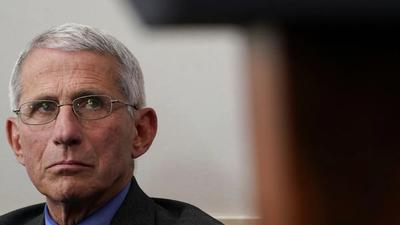
“It’s a nasty virus if you’re a mouse,” said Emory University virologist John Steel in a November 2014 interview with Science Magazine.
Steel was referring to PRS, a strain of influenza that he and his team had been studying until an order from the National Institutes of Health interrupted their work.
Concerned that gain-of-function research, the process of altering a pathogen to make it more lethal and more easily transmissible in order to develop vaccines and other remedies to eradicate it, was too risky, the NIH placed a moratorium on the practice in October 2014. Federal funding would no longer be available for research “involv[ing] tweaking influenza, MERS, and SARS viruses.”
In December 2017, the NIH announced they were lifting the Obama-era ban on the use of federal funds for gain-of-function research. The organization issued a statement that stated: “GOF research is important in helping us identify, understand, and develop strategies and effective countermeasures against rapidly evolving pathogens that pose a threat to public health.”
Investigative reporter Sharri Markson, the author of a forthcoming book entitled, “What Really Happened In Wuhan,” has been following the COVID story closely.
She reports that Dr. Anthony Fauci, the director of the National Institutes of Allergy and Infectious Diseases (NIAID), failed to notify the appropriate Trump Administration officials of this development. Markson wrote: “An investigation by The Weekend Australian has also confirmed Dr Fauci … did not alert senior White House officials before lifting the ban on gain-of-function research in 2017.”
China's leaders must marvel "how in western liberal democracies a disease that attacks our respiratory system can do so much damage to rational thought as well, and how hatred for a political opponent can triumph over concerns for the lives of others." 🔥https://t.co/ECVpXbpKil
— Sharri Markson (@SharriMarkson) May 28, 2021
The Weekend Australian spoke to “multiple” Trump administration insiders who confirmed that Fauci had not briefed them on the NIH decision to restore funding for gain-of-function research.
“It kind of just got rammed through,” one official told the publication. “I think there’s truth in the narrative that the (National Security Council) staff, the president, the White House chief-of-staff, those people were in the dark that he was switching back on the research.”
According to the report, the paper “also confirmed that neither Mike Pompeo, the then-director of the Central Intelligence Agency, nor National Security Council member Matthew Pottinger, was briefed.”
Markson also discovered a paper Fauci had published in the American Society for Microbiology in October 2012 in which he expressed his support for gain-of-function research. He considered that the benefits exceeded the risk of a pandemic.
Fauci wrote, “In an unlikely but conceivable turn of events, what if that scientist becomes infected with the virus, which leads to an outbreak and ultimately triggers a pandemic? Many ask reasonable questions: given the possibility of such a scenario — however remote — should the initial experiments have been performed and/or published in the first place, and what were the processes involved in this decision?
“Scientists working in this field might say — as indeed I have said — that the benefits of such experiments and the resulting knowledge outweigh the risks,” Fauci said.
“We cannot expect those who have these concerns to simply take us, the scientific community, at our word that the benefits of this work outweigh the risks, nor can we ignore their calls for greater transparency, their concerns about conflicts of interest, and their efforts to engage in a dialog about whether these experiments should have been performed in the first place.”
“Those of us in the scientific community who believe in the merits of this work have the responsibility to address these concerns thoughtfully and respectfully,” he added.
Up until two weeks ago, Fauci has insisted that COVID had a natural origin, that it jumped from an animal to a human. He now admits that it may have escaped from a lab.
During a Senate Health Committee hearing held in early May, Republican Sen. Rand Paul of Kentucky asked Fauci if NIAID funded gain-of-function research at the Wuhan Institute of Virology, which Fauci categorically denied.
“Yet papers published as late as last year in American peer-reviewed academic journals that include WIV researchers – including its prominent virologist Shi Zhengli – disclose that work on coronaviruses had been funded by at least three NIH grants,” according to the report in the Australian.
The NIH did provide a grant (or a series of grants) to a nonprofit called EcoHealth Alliance which was connected to the WIV. EcoHealth, in turn, provided funding to the WIV.
The video immediately went viral, which quickly drew intense media attention to both Fauci himself and the question of whether or not the U.S. funded gain-of-function research at the WIV.
Last week, The Wall Street Journal reported on a State Department document which revealed that three researchers from the Wuhan lab had fallen ill in November 2019 and were hospitalized “with symptoms consistent with both Covid-19 and common seasonal illness.”
The document had been issued by then-Secretary of State Mike Pompeo on Jan. 15. There were two other interesting pieces of information in the document.
The first item concerned “WIV Research on ‘RaTG13’ and ‘gain of function’: Starting in at least 2016, WIV researchers studied RaTG13, the bat coronavirus identified by the WIV in January 2020 as its closest sample to SARS-CoV-2 (96.2% similar). Since the outbreak, the WIV has not been transparent nor consistent about its work with RaTG13 or other similar viruses, including possible ‘gain of function’ experiments to enhance transmissibility or lethality.
And the second involved WIV’s “secret links” to Military Research: “Despite the WIV presenting itself as a civilian institution, the WIV has collaborated on publications and secret projects with China’s military. The WIV has engaged in classified research, including laboratory animal experiments, on behalf of the Chinese military since at least 2017.”
Hmmm.


